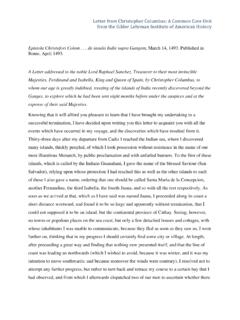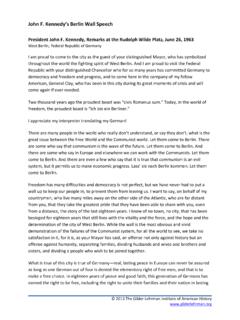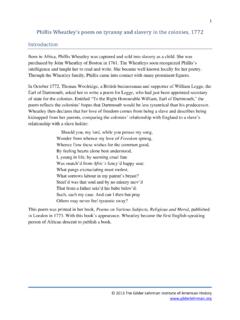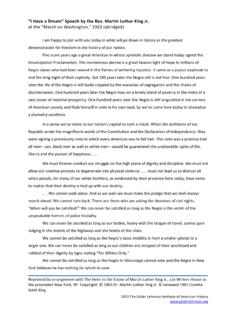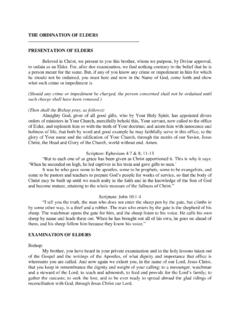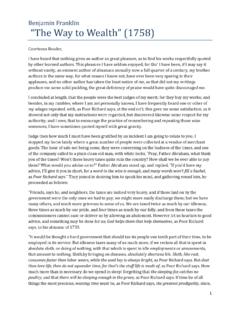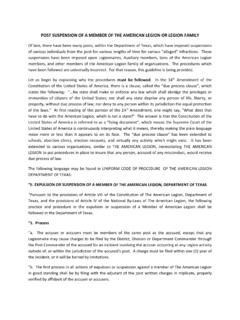Transcription of The Doctrine of Discovery, 1493 Introduction
1 1 The Doctrine of Discovery, 1493 2012 The Gilder Lehrman Institute of American History Introduction The Papal Bull Inter Caetera, issued by Pope Alexander VI on May 4, 1493, played a central role in the Spanish conquest of the New World. The document supported Spain s strategy to ensure its exclusive right to the lands discovered by Columbus the previous year. It established a demarcation line one hundred leagues west of the Azores and Cape Verde Islands and assigned Spain the exclusive right to acquire territorial possessions and to trade in all lands west of that line.
2 All others were forbidden to approach the lands west of the line without special license from the rulers of Spain. This effectively gave Spain a monopoly on the lands in the New World. The Bull stated that any land not inhabited by Christians was available to be discovered, claimed, and exploited by Christian rulers and declared that the Catholic faith and the Christian religion be exalted and be everywhere increased and spread, that the health of souls be cared for and that barbarous nations be overthrown and brought to the faith itself.
3 This Doctrine of Discovery became the basis of all European claims in the Americas as well as the foundation for the United States western expansion. In the US Supreme Court in the 1823 case Johnson v. McIntosh, Chief Justice John Marshall s opinion in the unanimous decision held that the principle of discovery gave European nations an absolute right to New World lands. In essence, American Indians had only a right of occupancy, which could be abolished. The Bull Inter Caetera made headlines again throughout the 1990s and in 2000, when many Catholics petitioned Pope John Paul II to formally revoke it and recognize the human rights of indigenous non-Christian peoples.
4 Questions for Discussion Read the Introduction and the document transcript in order to answer these questions. 1. By what authority did Pope Alexander VI claim the power to give Spain nearly exclusive possession of the New World? 2. Why do you think Spain wanted exclusive rights to the New World? 3. Along with the right to possess the land, the Papal Bull also indicated that Spain had specific responsibilities. List and explain these duties. 4. Why was it impossible for Spain, or indeed any other European nation, to realize the extent of the territory Spain controlled after May 1493?
5 2 The Doctrine of Discovery, 1493 2012 The Gilder Lehrman Institute of American History Image Pope Alexander VI's Demarcation Bull, May 4, 1493. (The Gilder Lehrman Collection, GLC04093) 3 The Doctrine of Discovery, 1493 2012 The Gilder Lehrman Institute of American History Transcript Pope Alexander VI's Demarcation Bull, May 4, 1493. (The Gilder Lehrman Collection, GLC04093) Alexander, bishop, servant of the servants of God, to the illustrious sovereigns, our very dear son in Christ, Ferdinand, king, and our very dear daughter in Christ, Isabella, queen of Castile, Leon, Aragon, Sicily, and Granada, health and apostolic benediction.
6 Among other works well pleasing to the Divine Majesty and cherished of our heart, this assuredly ranks highest, that in our times especially the Catholic faith and the Christian religion be exalted and be everywhere increased and spread, that the health of souls be cared for and that barbarous nations be overthrown and brought to the faith itself. Wherefore inas- much as by the favor of divine clemency, we, though of insufficient merits, have been called to this Holy See of Peter, recognizing that as true Catholic kings and princes, such as we have known you always to be, and as your illustrious deeds already known to almost the whole world declare, you not only eagerly desire but with every effort, zeal, and diligence, without regard to hardships, expenses, dangers, with the shedding even of your blood, are laboring to that end.
7 Recognizing also that you have long since dedicated to this purpose your whole soul and all your endeavors--as witnessed in these times with so much glory to the Divine Name in your recovery of the kingdom of Granada from the yoke of the Saracens--we therefore are rightly led, and hold it as our duty, to grant you even of our own accord and in your favor those things whereby with effort each day more hearty you may be enabled for the honor of God himself and the spread of the Christian rule to carry forward your holy and praiseworthy purpose so pleasing to immortal God.
8 We have indeed learned that you, who for a long time had intended to seek out and discover certain islands and mainlands remote and unknown and not hitherto discovered by others, to the end that you might bring to the worship of our Redeemer and the profession of the Catholic faith their residents and inhabitants, having been up to the present time greatly engaged in the siege and recovery of the kingdom itself of Granada were unable to accomplish this holy and praiseworthy purpose; but the said kingdom having at length been regained, as was pleasing to the Lord, you, with the wish to fulfill your desire, chose our beloved son, Christopher Columbus, a man assuredly worthy and of the highest recommendations and fitted for so great an undertaking, whom you furnished with ships and men equipped for like designs, not without the greatest hardships, dangers, and expenses, to make diligent quest for these remote and unknown mainlands and islands through 4 The Doctrine of Discovery.
9 1493 2012 The Gilder Lehrman Institute of American History the sea, where hitherto no one had sailed; and they at length, with divine aid and with the utmost diligence sailing in the ocean sea, discovered certain very remote islands and even mainlands that hitherto had not been discovered by others; wherein dwell very many peoples living in peace, and, as reported, going unclothed, and not eating flesh. Moreover, as your aforesaid envoys are of opinion, these very peoples living in the said islands and countries believe in one God, the Creator in heaven, and seem sufficiently disposed to embrace the Catholic faith and be trained in good morals.
10 And it is hoped that, were they instructed, the name of the Savior, our Lord Jesus Christ, would easily be introduced into the said countries and islands. Also, on one of the chief of these aforesaid islands the said Christopher has already caused to be put together and built a fortress fairly equipped, wherein he has stationed as garrison certain Christians, companions of his, who are to make search for other remote and unknown islands and mainlands. In the islands and countries already discovered are found gold, spices, and very many other precious things of divers kinds and qualities.
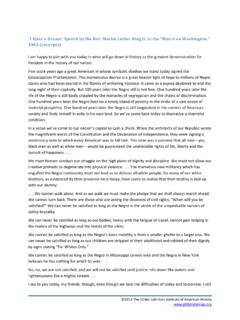
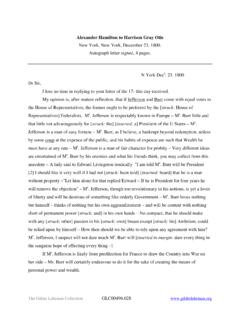
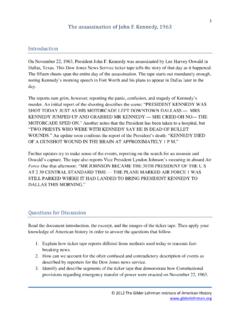
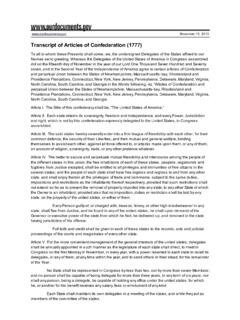
![Articles of Confederation [first printing, first edition]](/cache/preview/1/d/5/8/3/e/2/a/thumb-1d583e2a95e93f880e7d53ec1bb21484.jpg)
